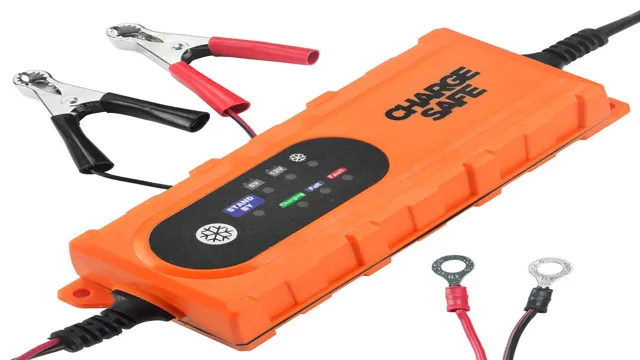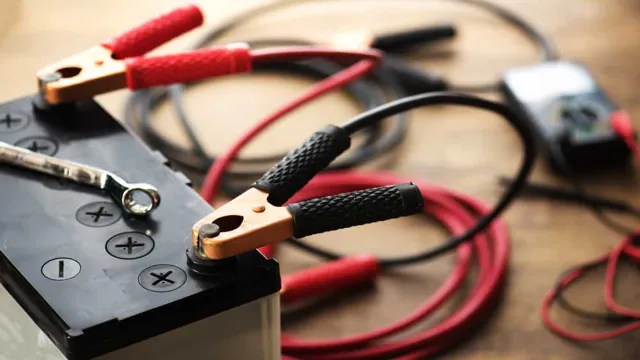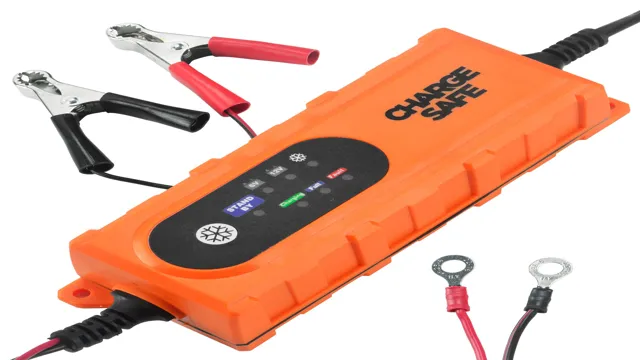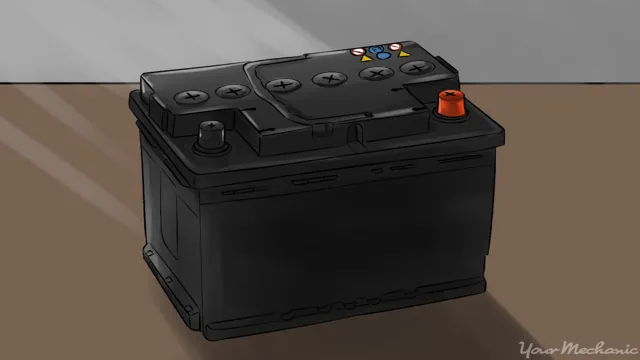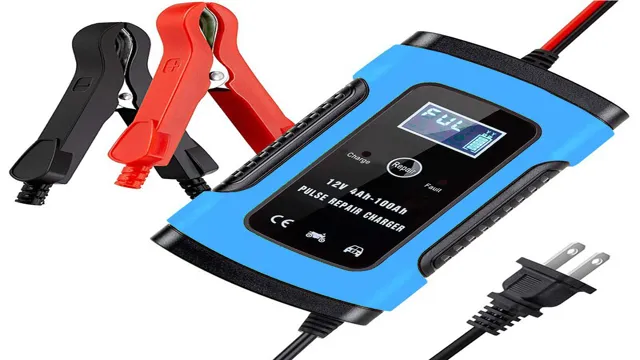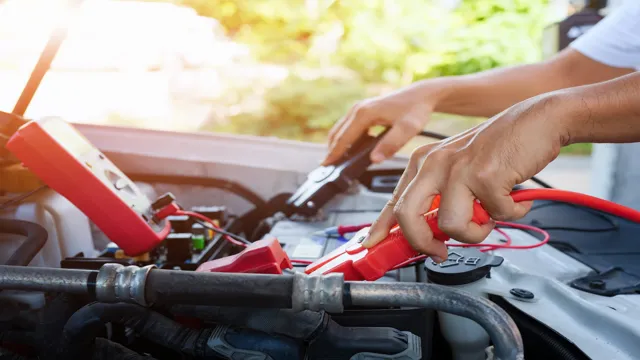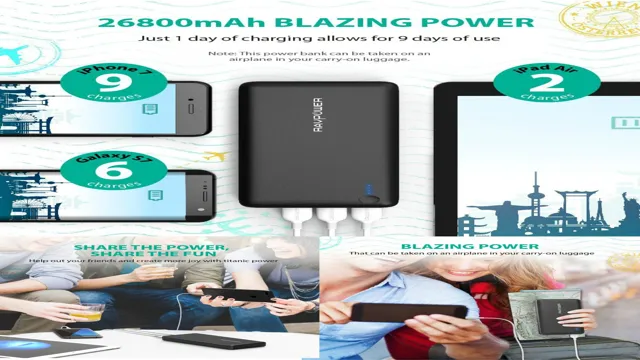How Long to Leave a Car Battery Charger On: Tips and Tricks for Maximizing Charging Time

Nothing is more frustrating than heading to your car, turning the key, and hearing nothing. You try again, and still, nothing happens. Chances are your car battery needs a recharge.
Whether you left the headlights on, or your alternator is malfunctioning, a drained battery is never a pleasant experience. Fear not, because we’ve got you covered with the ultimate guide to charging your car battery. From jumpstarting your battery to installing a new one, this guide will take you through all the necessary steps to get your car up and running again.
We’ll also cover the different types of car batteries, common causes for a drained battery, and how to maintain your battery to prolong its life. Think of this guide as your go-to manual for all things car battery related. Whether you’re a seasoned driver or just starting out, knowing how to properly charge your car battery is a crucial skill that can save you time, money, and frustration in the long run.
So, let’s get started and dive into the world of car batteries and how to charge them like a pro.
How Long to Leave a Car Battery Charger On
If you’re wondering how long to leave a car battery charger on, the answer lies in understanding the kind of charger you’re using. A fully automatic charger can sense when the battery is fully charged and will automatically switch to maintenance mode to avoid overcharging. In this case, you can leave the charger on for days or even months without causing any damage to your battery.
However, for traditional chargers, it’s important to keep an eye on the battery and remove the charger once it’s fully charged. Leaving a traditional charger on for too long could cause the battery to overheat and lead to permanent damage. Generally, it’s a good idea to check on the battery every hour or so and disconnect the charger once the battery is fully charged.
By doing so, you can ensure that your car’s battery stays in good condition and lasts longer.
Understanding the Charging Process
When it comes to charging a car battery, the question that often arises is how long to leave the car battery charger on. The ideal charging time can vary based on factors such as the type of battery, charger capacity, and the extent of discharge. Typically, a car battery charger takes around 8-12 hours for a full charge, but in some cases, the charging time can range from 2-24 hours.
It is important to avoid overcharging, as it can reduce the battery’s overall lifespan and increase the risk of damage. Therefore, it is best to follow the manufacturer’s recommendations and use a charger with an automatic shut-off feature once the battery is fully charged. In case of doubts or confusion, it is advisable to consult an expert or refer to the user manual for specific information.
By understanding the charging process and following appropriate guidelines, you can ensure your car battery stays charged and ready for use.
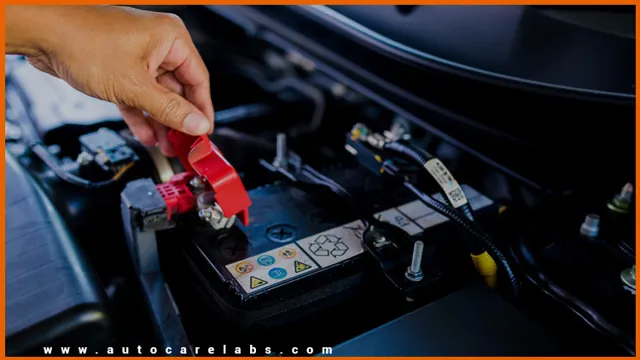
Factors That Affect Charging Time
When it comes to charging your car battery, there are several factors that can affect the charging time. First and foremost, the size of your battery plays a significant role in determining how long you should leave your car battery charger on. A larger battery requires more time to charge than a smaller one.
The type of charger you’re using also matters. A fast charger will obviously charge your battery more quickly than a slow one. Other factors to consider include the age of your battery, the level of charge remaining, and the ambient temperature.
In general, it’s recommended to leave your car battery charger on for at least 12 hours, but the exact time will depend on various factors. Always refer to the manufacturer’s instructions and make sure to monitor the progress of the charging process to avoid overcharging, which can damage your battery. Remember, charging your car battery is a crucial step in ensuring your vehicle operates smoothly, so it’s worth taking the time to do it right.
Determining the Right Charging Time
If you’re wondering how long to leave a car battery charger on, there are a few things to consider. First, you should determine the state of your battery. If it’s completely dead, you may need to leave the charger on for several hours or even overnight.
However, if your battery just needs a little bit of a boost, you may only need to leave the charger on for an hour or two. Additionally, you should pay attention to the charger’s specifications. Some chargers are designed to provide a fast charge, which can be convenient if you’re in a hurry, but may not be ideal for your battery’s health in the long term.
Other chargers provide a slower, more gradual charge that can be better for your battery’s lifespan. Ultimately, the ideal charging time will depend on your specific battery and charger, so be sure to consult the manufacturer’s instructions or seek guidance from a professional if you’re unsure. Regardless of how long you choose to charge your battery, be sure to monitor it regularly and disconnect the charger once the battery is fully charged to prevent overcharging and damage.
Types of Car Battery Chargers
When it comes to determining the right charging time for your car battery, there are several factors to consider. First, it’s important to ensure that your charger is the appropriate type for your battery. There are three main types of chargers: trickle chargers, fast chargers, and smart chargers.
Trickle chargers are designed to charge your battery slowly over an extended period of time, while fast chargers are intended to quickly recharge your battery. Smart chargers use advanced algorithms to optimize the charging process and can be used on a variety of battery types. Once you’ve determined the appropriate charger for your battery, it’s important to consult your owner’s manual for specific charging instructions.
In general, however, it’s recommended to charge your battery to a full capacity before disconnecting the charger. This will ensure that your battery is properly charged and ready to go when you need it. Remember, a properly charged battery is essential for your vehicle to run efficiently and reliably, so take the time to ensure that you’re charging it correctly.
Charging Time Based on Charger Type
When it comes to charging your devices, the charging time can vary depending on the type of charger you are using. Generally, the type of charger you have will determine how quickly your device can charge. For example, if you have a standard wall charger, it may take a few hours to fully charge your device.
However, if you have a fast charger or a quick charge 0 charger, you can expect your device to charge much faster. In fact, with a quick charge
0 charger, you can expect to get up to 50% battery life in just 30 minutes of charging time. So, determining the right charging time depends on the type of charger you have and the device you are charging. Remember, using the right charging cable is also important to ensure you get the fastest charging time possible.
How to Check If Your Battery is Fully Charged
When it comes to determining the right charging time for your battery, there are a few things to keep in mind. First, it’s important to check the manufacturer’s recommended charging time, as this can vary depending on the type of battery and device you’re using. Additionally, watching the battery level can give you a good idea of when it’s fully charged.
Most devices will display a notification or indicate when the battery is at 100%. It’s important to avoid overcharging your battery, as this can reduce its overall lifespan. In general, keeping an eye on the charging process and removing the device from the charger once it’s fully charged is the best way to ensure your battery stays in good condition.
With a little attention and care, you can keep your battery at its best and avoid unnecessary replacements or repairs.
Tips for Safe and Efficient Charging
When it comes to maintaining the health of your car battery, charging it is a critical part of the process. But how long should you leave a car battery charger on? Generally, it’s safe to let a battery charge for a full day or even longer if it’s deeply discharged. However, the length of time will depend on the type of charger you’re using and the level of discharge of the battery.
It’s important to follow the manufacturer’s instructions carefully to ensure safe and efficient charging. It’s also a good idea to monitor the battery temperature and disconnect the charger once it’s fully charged to prevent overcharging. Keeping your car battery charged and in good condition is essential for ensuring your vehicle starts up every time you need it.
So, be sure to take the time to properly charge your battery, and you’ll avoid the hassle of being stranded with a dead battery.
Precautions When Charging Your Car Battery
If you own a car, you know that the battery is what powers your vehicle’s electrical components. However, like all batteries, your car battery has a limited lifespan. When the battery dies, it needs to be recharged properly to keep it running smoothly.
Before charging your battery, make sure you’re taking the necessary precautions to do so safely and efficiently. Firstly, always read your car manual carefully and follow the manufacturer’s instructions for charging your battery. Secondly, ensure that you’re wearing appropriate gear like gloves and eye protection.
Also, make sure you’re operating the charger in a well-ventilated area and away from any flammable items. Additionally, connect the cables to the car battery properly and in the right order (positive first and negative last). Finally, make sure that you’re monitoring the charging progress regularly and disconnect the cables as soon as the battery is fully charged.
By following these simple tips, you can help maximize your battery life and stay safe while charging your car battery.
Maximizing the Life Span of Your Battery
If you want to extend the life span of your battery and keep it in good shape, it’s important to follow some basic tips for safe and efficient charging. First, avoid overcharging your battery. This means unplugging your device as soon as it’s fully charged, and not leaving it connected to the charger for prolonged periods of time.
Another important tip is to use the correct charger for your device, as using a charger that’s too powerful or too weak could damage your battery. Additionally, try to keep your battery at room temperature, as exposure to extreme temperatures (such as leaving your device in a hot car) can cause the battery to degrade more quickly. And finally, try to avoid letting your battery completely drain before charging it, as this can also increase wear and tear.
By following these simple tips, you can help ensure that your battery stays healthy and functional for as long as possible.
Final Thoughts
If you’re wondering how long to leave a car battery charger on, the answer can vary depending on certain factors such as the type of charger you’re using and the condition of your battery. Generally, it’s recommended to charge your car battery until it reaches a full charge, so leaving your car battery charger on overnight is usually safe. However, it’s important not to overcharge your battery as it can cause damage and shorten its lifespan.
The best approach is to check your battery’s voltage periodically while it’s charging and to disconnect the charger once it reaches a full charge. If you’re using a fully automatic charger, it will automatically sense when your battery is fully charged and will shut off to prevent overcharging. Remember to always read the manufacturer’s instructions and to take caution when handling batteries and chargers to avoid any accidents or injuries.
Conclusion
As with most things in life, it’s all about balance. Leaving your car battery on the charger for too short a time won’t give it the full charge it needs, while leaving it on for too long can lead to overcharging and potential damage. So, like Goldilocks searching for the perfect bowl of porridge, it’s important to find the “just right” amount of time, depending on the battery’s specific needs and your charger’s capabilities.
Remember, a little bit of patience goes a long way in keeping your car battery charged up and ready to go!”
FAQs
How long should I leave a car battery charger on?
The amount of time needed to charge a car battery depends on the charger and the battery’s specific needs. Some chargers can fully charge a battery in just a few hours, while others may take up to 24 hours. It’s recommended to consult the user manual for your charger to determine the appropriate charging time for your battery.
Can leaving a charger on a car battery too long damage it?
Yes, leaving a charger on a car battery for too long can potentially damage the battery, the charger, or even both. It’s important to read and follow the instructions provided with your charger to prevent overcharging the battery.
What is the best type of charger for a car battery?
There are several types of car battery chargers available, each with their own advantages and disadvantages. Some of the most common types include trickle chargers, smart chargers, and jump starters. The best charger for your specific needs will depend on factors such as the type and age of your battery and the length of time you plan to store your vehicle.
How often should I charge my car battery?
The frequency with which you need to charge your car battery will depend on how often you use your vehicle and how long it sits unused. In general, it’s a good idea to charge your battery at least once every two weeks if you’re not using your car regularly. If you use your car frequently, you probably won’t need to charge the battery as often.
Can I jump-start my car instead of using a charger?
Yes, if your battery is dead, you can jump-start your car using another vehicle or a portable jump-starter. This method is only useful for getting the car started, however, and is not a substitute for charging the battery. Once you’ve jump-started the car, it’s important to drive it for at least 30 minutes to fully charge the battery.

